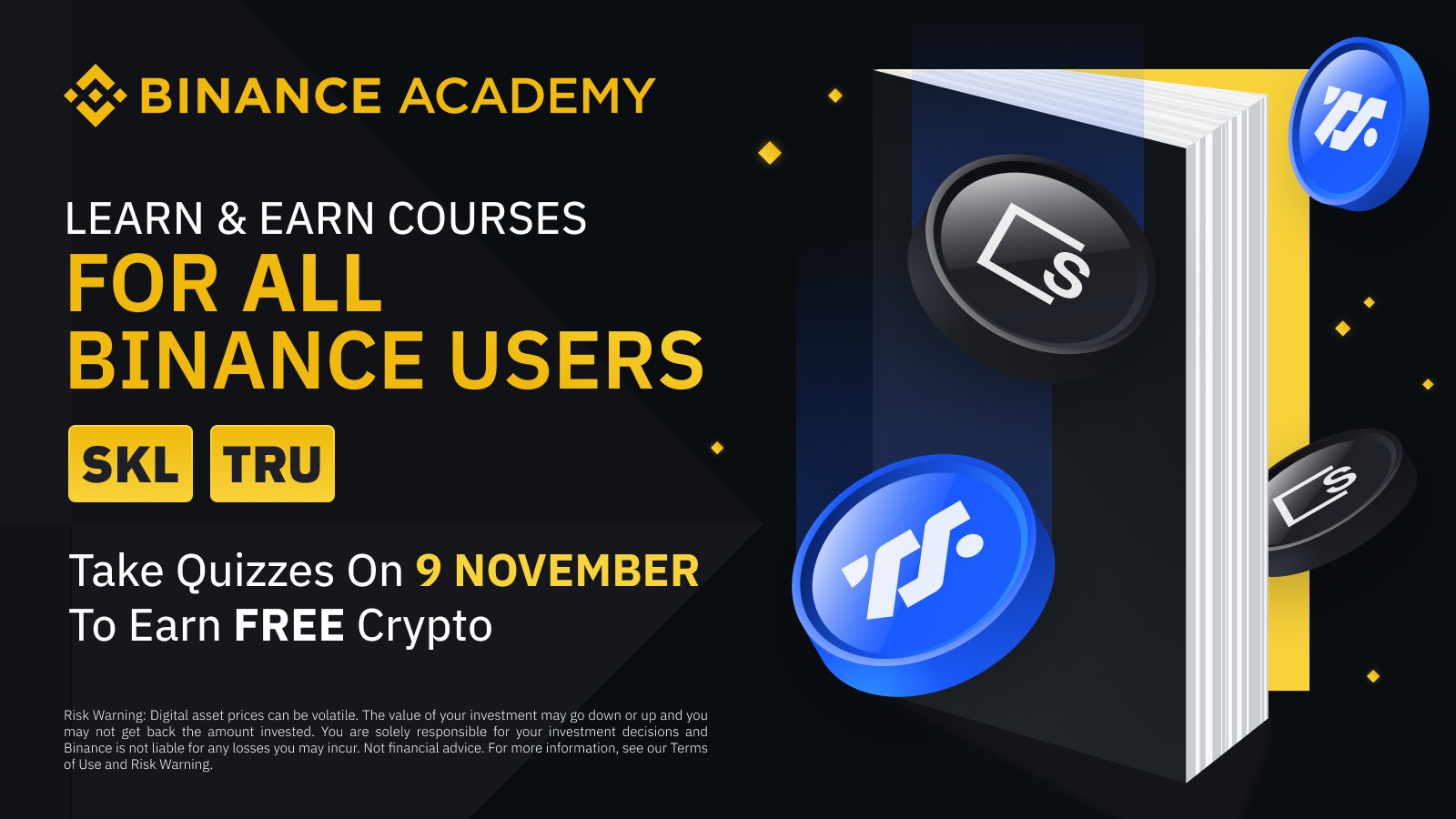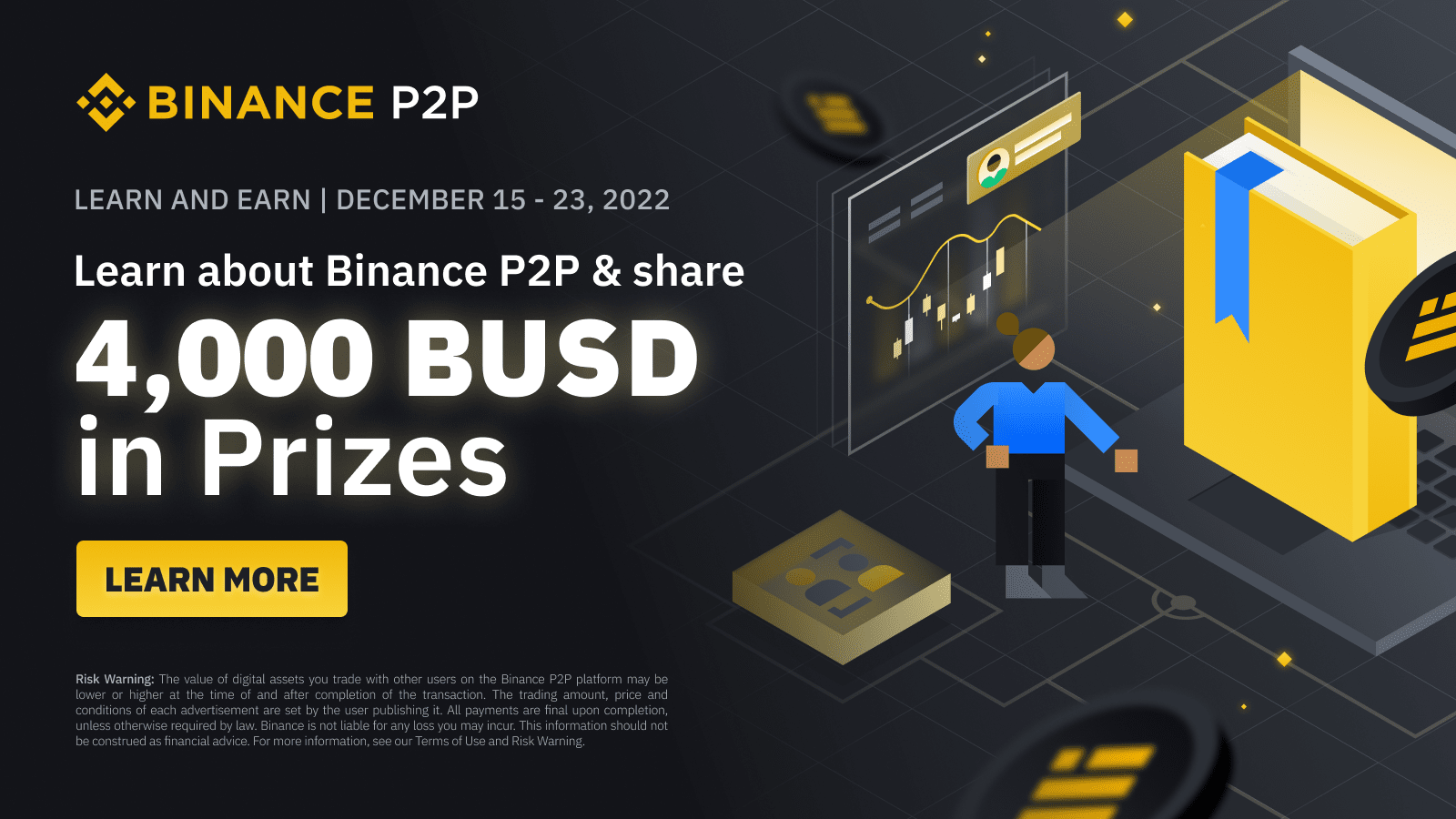Introduction
Explore the Binance Learn and Earn Quiz Answers for Unveiling the Secrets to Crypto Knowledge In the dynamic world of cryptocurrency, staying informed is key to making informed decisions. Binance, one of the leading cryptocurrency exchanges globally, understands the importance of education in the crypto space.
To empower its users and promote financial literacy, Binance has introduced the “Learn and Earn” program, featuring quizzes designed to test and enhance users’ knowledge about various aspects of the crypto world. In this article, we will delve into the Binance Learn and Earn quiz answers, unraveling the mysteries of blockchain, cryptocurrencies, and decentralized finance.

Section 1: Understanding the Basics of Binance Learn and Earn Quiz Answers
The first set of questions in the Binance Learn and Earn Quiz often focuses on fundamental concepts in the cryptocurrency space. These questions may cover topics such as the definition of blockchain, the role of miners, and the basics of how cryptocurrencies work. To ace these questions, participants should have a solid understanding of the foundational principles that underpin the entire crypto ecosystem.
1.1. What is Blockchain?
Blockchain is the underlying technology behind most cryptocurrencies. It is a decentralized, distributed ledger that records transactions across a network of computers in a secure and transparent manner. Each block in the chain contains a list of transactions, and once a block is completed, it is linked to the previous one, forming a chain of blocks.
1.2. How are Transactions Verified on the Blockchain?
Transactions on the blockchain are verified through a process called mining. Miners use powerful computers to solve complex mathematical problems, and once a problem is solved, the miner adds a new block to the blockchain. This process ensures the security and integrity of the entire system.

1.3. What is the Role of a Private Key in Cryptocurrency?
A private key is a cryptographic key that allows the owner to access their cryptocurrency. It must be kept confidential, as anyone with access to the private key has control over the associated digital assets. Conversely, a public key is shared with others to receive funds.
Section 2: Exploring Cryptocurrencies
The next set of questions often revolves around specific cryptocurrencies and their unique features. Participants need to be familiar with popular cryptocurrencies, their use cases, and the technology behind them to answer these questions accurately.
must read=Binance Alpine Learn & Ern Quiz Answers: Win Alpine & NFTs
2.1. What is the Purpose of Bitcoin?
Bitcoin, the first and most well-known cryptocurrency, was created as a decentralized digital currency. It allows for peer-to-peer transactions without the need for intermediaries like banks. Bitcoin operates on a blockchain, providing security and transparency.
2.2. How Does Ethereum Differ from Bitcoin?
While Bitcoin primarily serves as a digital currency, Ethereum is a decentralized platform that enables the creation of smart contracts and decentralized applications (DApps). Ethereum’s native cryptocurrency is called Ether (ETH), and it plays a crucial role in facilitating transactions and computational services on the Ethereum network.
2.3. What is the Significance of Altcoins in the Crypto Market?
Altcoins, or alternative cryptocurrencies, refer to any digital currency other than Bitcoin. They often serve specific purposes, such as enhancing privacy (e.g., Monero), facilitating fast transactions (e.g., Ripple), or providing a platform for smart contracts (e.g., Binance Coin on the Binance Smart Chain).
Section 3: Decentralized Finance (DeFi) and Binance Smart Chain (BSC)
The Learn and Earn quiz frequently delves into the realm of decentralized finance and Binance Smart Chain. Questions may cover topics such as decentralized exchanges, liquidity pools, and the advantages of using BSC for certain transactions.

3.1. What is Decentralized Finance (DeFi)?
Decentralized Finance, or DeFi, refers to a financial system built on blockchain technology that aims to recreate traditional financial instruments, such as loans and trading, without relying on centralized authorities like banks. DeFi platforms operate through smart contracts, providing users with more control over their assets.
3.2. How Does Binance Smart Chain Enhance Transaction Speed?
Binance Smart Chain (BSC) is a blockchain network that runs in parallel with Binance Chain. It is designed to facilitate fast and low-cost transactions. BSC achieves this by using a consensus mechanism called Proof of Staked Authority (PoSA), which allows for quick block confirmation times and efficient transaction processing.
3.3. What is the Role of Liquidity Pools in DeFi?
Liquidity pools are a fundamental component of decentralized exchanges (DEXs) in the DeFi space. Users contribute their cryptocurrency assets to these pools, providing liquidity for traders. In return, liquidity providers earn fees from the trades that occur within the pool. Liquidity pools play a crucial role in ensuring the smooth functioning of decentralized markets.
Section 4: Navigating the Cryptocurrency Landscape
The final section of the Binance Learn and Earn Quiz Learn and Earn quiz often explores broader topics related to the cryptocurrency landscape. Questions may cover market trends, regulatory developments, and the importance of security in the crypto space.

4.1. How Can Users Safeguard Their Cryptocurrency Assets?
Security is paramount in the cryptocurrency space. Users can safeguard their assets by using hardware wallets, enabling two-factor authentication, and keeping their private keys offline. Additionally, staying informed about potential scams and exercising caution when sharing personal information online are essential precautions.
4.2. What Factors Influence Cryptocurrency Prices?
Cryptocurrency prices are influenced by a variety of factors, including market demand and supply, investor sentiment, macroeconomic trends, regulatory developments, and technological advancements. Traders and investors need to stay informed about these factors to make informed decisions in the volatile crypto market.
4.3. How Can Regulatory Developments Impact the Cryptocurrency Industry?
The regulatory landscape for cryptocurrencies is evolving globally. Regulatory developments can significantly impact the industry by influencing market behavior, adoption rates, and the overall legitimacy of cryptocurrencies. Participants in the crypto space should stay abreast of regulatory changes to navigate the market effectively.
Conclusion
Participating in the Binance Learn and Earn quiz not only provides an opportunity to earn rewards but also serves as a valuable educational experience in the ever-evolving world of cryptocurrency. By mastering the quiz answers, users can enhance their understanding of blockchain technology, various cryptocurrencies, decentralized finance, and the broader cryptocurrency landscape. As the crypto space continues to grow, staying informed and continuously expanding one’s knowledge base is crucial for making informed decisions and navigating the exciting and dynamic world of cryptocurrencies.




